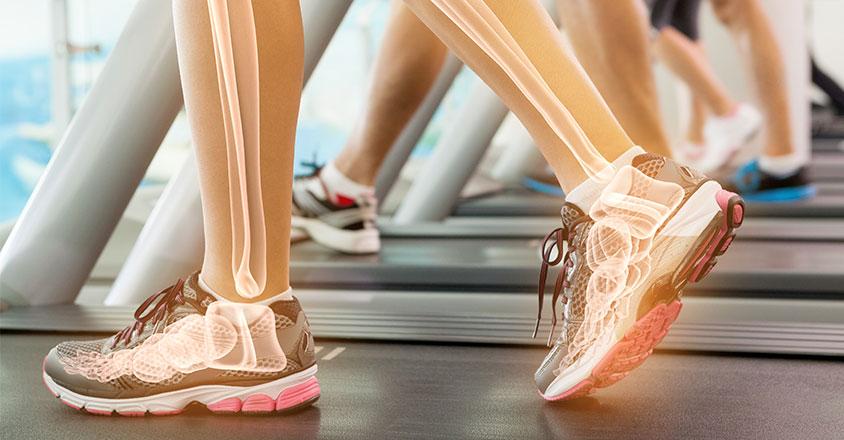

No bones about it: Your bone health matters
There are no bones about it – your bone health is vitally important. When you develop a condition like osteoporosis, you are susceptible to various health problems later in life.
Osteoporosis is a disease that affects your bones, meaning they are thin and brittle with lots of holes inside them, like a sponge. This makes them easy to break. Osteoporosis can lead to broken bones (fractures) in the hip, spine and wrist. These fractures can be disabling and may make it hard for you to live on your own.
What causes osteoporosis?
“A lack of bone strength or bone density causes osteoporosis,” said Corey Jackson, D.O., board-certified orthopedic surgeon with the Genesis Orthopedic Group. “As you age, your bones get thinner naturally. Some risk factors can make you more likely to have osteoporosis. And some of those, like age and family history, are ones you can’t control. One of the risk factors – not getting enough weight-bearing exercise, is something you can control.”
Exercises for your bones
There are two types of osteoporosis exercises essential for building and maintaining bone density: weight-bearing and muscle-strengthening exercises.
Weight-bearing exercises
These exercises include activities that make you move against gravity while staying upright. Weight-bearing exercises can be high-impact or low-impact.
High-impact weight-bearing exercises help build bones and keep them strong. If you have broken a bone due to osteoporosis or are at risk of breaking a bone, you may need to avoid high-impact exercises. If you’re not sure, you should check with your healthcare provider.
Examples of high-impact weight-bearing exercises are:
Dancing
Doing high-impact aerobics
Hiking
Jogging/running
Jumping rope
Stair climbing
Tennis
Low-impact weight-bearing exercises can also help keep bones strong and are a safe alternative if you can’t do high-impact exercises.
Examples of low-impact weight-bearing exercises are:
Using elliptical training machines
Doing low-impact aerobics
Using stair-step machines
Fast walking on a treadmill or outside
Muscle-strengthening exercises
These exercises include activities where you move your body, a weight or some other resistance against gravity. They are also known as resistance exercises.
Examples of resistance exercises include:
Lifting weights
Using elastic exercise bands
Using weight machines
Lifting your body weight
Functional movements, such as standing and rising on your toes
Check with your healthcare provider to see what exercises are recommended for you. It’s time to start improving your bone health today for a healthier tomorrow.
Source: Healthwise.org; National Osteoporosis Foundation
Ready to get healthy?
Sign up for our digital newsletters to receive health tips, recipes, success stories for inspiration and information about new doctors to help you on your journey to better health.
Genesis HealthCare System’s Health and Wellness content conveniently provides accurate and helpful information. Your health history and current health may impact suggestions provided through our Health and Wellness content. Although we hope this information is helpful, it is not a substitute for your doctor's medical advice. Before making any significant changes, please consult your doctor.



